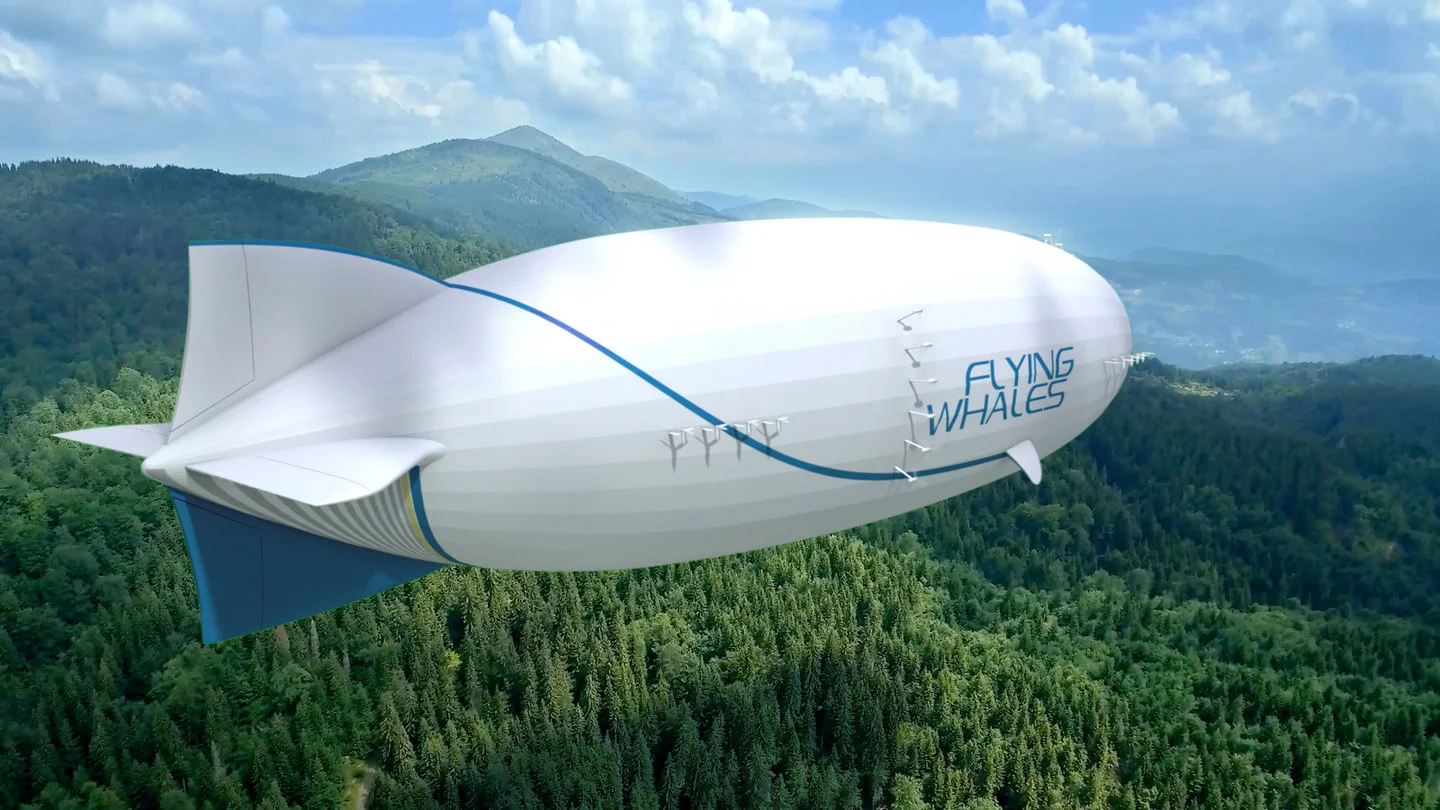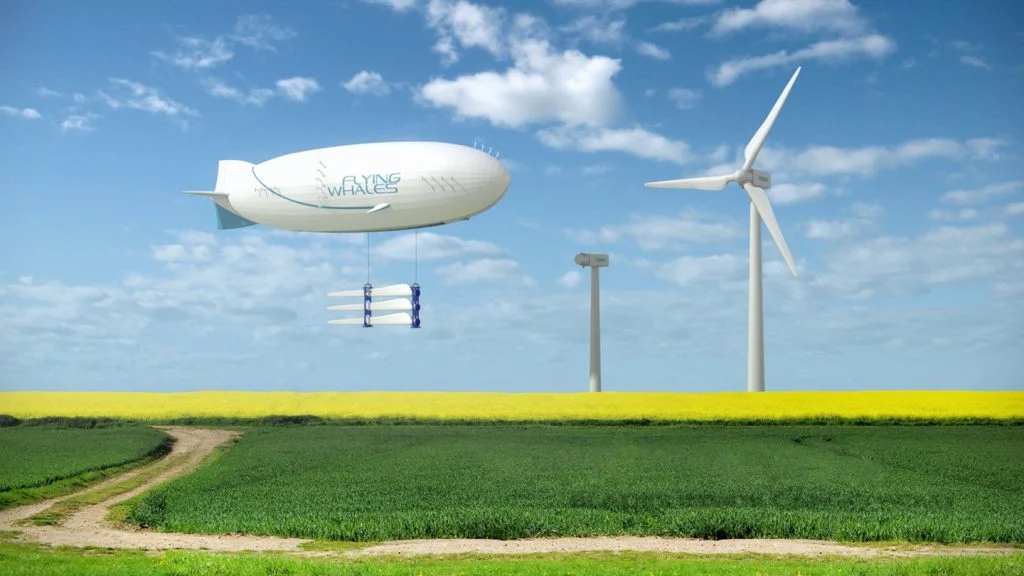
Evolito to Supply Electric Motors for Flying Whales Airships
Evolito Limited has proudly announced an exciting new collaboration with Flying Whales, a pioneering company specializing in the development of large-capacity airships. This partnership represents a groundbreaking step forward in sustainable cargo aviation, showcasing innovative solutions to real-world logistical challenges while significantly reducing the carbon footprint of air transport.
Flying Whales is at the forefront of revolutionizing aerial cargo transportation through the design and development of the LCA60T airship, an advanced vehicle that is set to redefine the way heavy and oversized cargo is moved across the globe. Evolito, an industry leader in electric propulsion technology, will contribute its cutting-edge D250 electric propulsion motor to power this massive airship.
The LCA60T, measuring an impressive 200 meters in length, is designed to carry payloads of up to 60 tonnes. This capability makes it a game-changer for transporting goods in remote regions where traditional infrastructure is either lacking or insufficient. By integrating Evolito’s state-of-the-art electric propulsion systems, Flying Whales is taking a decisive step toward making aerial logistics more efficient, environmentally sustainable, and adaptable to modern supply chain needs.
A major motivation behind this partnership is the shared commitment of both companies to reducing greenhouse gas emissions and promoting greener logistics practices. By harnessing Evolito’s innovative propulsion technology, Flying Whales aims to demonstrate that electric flight can be a viable and sustainable alternative to conventional air cargo transportation, which has long been dominated by fossil fuel-powered aircraft.
The Role of Evolito’s Electric Motors in the LCA60T Airship
Flying Whales selected Evolito’s D250 electric motor due to its industry-leading power and torque density. The airship’s propulsion system will rely on 32 of these high-performance motors, which are widely regarded as the smallest and lightest in their class. Evolito’s D250 motor boasts a remarkable power density of 18.5 kW/kg, delivering a peak power of 240 kW while weighing only 13 kg. These attributes make it an ideal solution for a project where weight efficiency is a critical design consideration.
Another crucial factor in Flying Whales’ selection of Evolito as its electric motor provider was the company’s ability to scale production efficiently. To meet the anticipated production needs of the LCA60T, Evolito has demonstrated its capability to ramp up output and maintain consistent quality, a key requirement for the success of Flying Whales’ ambitious fleet expansion.

Evolito’s pioneering work in electric propulsion has garnered recognition within the aerospace industry. In 2023, the company received Design Organisation Approval from the UK’s Civil Aviation Authority (CAA), a significant milestone in the certification process. Evolito is also working towards achieving Production Organisation Approval (POA) and ISO9001 certification later this year. These regulatory approvals will further streamline certification costs for Flying Whales and reinforce the credibility and safety of Evolito’s propulsion technology within the aerospace industry.
The Impact of the LCA60T on Global Logistics and Sustainability
The LCA60T airship is poised to transform cargo transportation, especially in regions with limited infrastructure. Traditional heavy cargo transport typically relies on extensive ground-based networks, including highways, railways, and ports, which are often expensive to build and maintain. In contrast, the LCA60T presents a highly flexible and cost-effective alternative, capable of reaching remote locations without the need for extensive infrastructure investments.
By operating with electric propulsion, the LCA60T significantly reduces reliance on fossil fuels, cutting greenhouse gas emissions and minimizing the environmental impact of cargo transportation. This aligns with the broader global push for sustainability in aviation and logistics.
Governments, industries, and regulatory bodies worldwide are increasingly seeking alternatives that lower carbon footprints and reduce the dependency on traditional, fuel-intensive transportation methods. The partnership between Evolito and Flying Whales exemplifies how technological innovation can drive meaningful progress toward a greener future.
Statements from Industry Leaders
Both companies’ leadership teams have expressed enthusiasm for this collaboration, emphasizing the synergy between their respective missions and the potential impact of their combined efforts on the future of aviation.
Vincent Guibout, CEO of Flying Whales, underscored the critical importance of weight efficiency in airship design. He noted, “When designing an airship, weight is critical. In the three years we have been working together, Evolito has demonstrated the ability to deliver best-in-class power density from its unique axial flux electric motors, along with the ability to ramp production to meet our forecast requirements. There is an excellent synergy between our teams—we share the same passion for enabling electric flight through engineering excellence and innovation. I look forward to working with Evolito towards the first LCA60T flight and beyond into production and commercial operation.”
Dr. Chris Harris, CEO and co-founder of Evolito, expressed his excitement about the project, stating, “Flying Whales’ LCA60T airship is a truly inspirational aircraft, demonstrating that electric flight can help solve global challenges—from reducing harmful emissions to delivering critical infrastructure sustainably. Evolito’s unique axial-flux technology enables a new class of lightweight, compact, and high-performance electric motors, opening up many new aircraft designs, mission profiles, and use cases—setting new standards in electric propulsion for aerospace.

